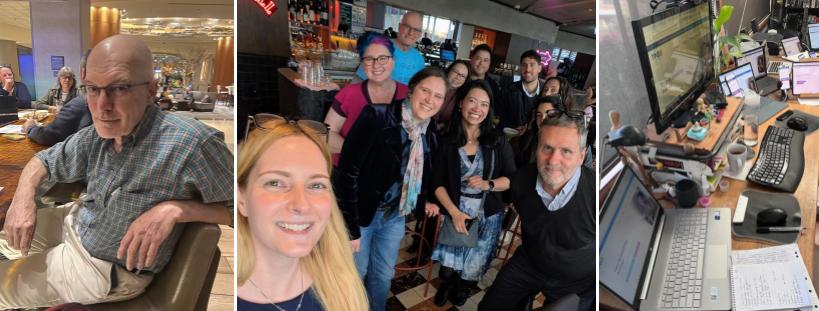Our monthly Employee Spotlight series offers a behind-the-scenes look at the talented individuals who bring Vispero’s products to life. This month we are shining the spotlight on Ricky Onsman, Principal Technical Writer.

We chatted with Ricky to learn about his journey in the accessibility field, why he thinks everyone should know about JAWS screen reader, and his work on The Knowledge Center.
Q&A with Ricky Onsman
What is your current role at Vispero?
Ricky: I’m Principal Technical Writer at the Knowledge Center, part of Vispero.
How did you first become interested in assistive technology or accessibility?
R: That goes back to the 1990s when I managed an information service for people with disabilities in Sydney, Australia. It was right at the time that bulletin boards, then email lists, then the web started to connect individuals with disabilities with each other, support groups, products, and services.
What drew you to Vispero, and how has your journey with the company evolved over time?
R: I spent 20 years as a freelance web designer, front end developer, and content writer (back when you could be a jack-of-all-trades and people hired you to be their “web guy”). I always assumed accessibility was part of the job and that qualified me over the next 10 years to work with a series of agencies focused on digital accessibility testing and remediation.
When I joined Vispero 5 years ago, I was hired to write training courses for our staff and clients. Gradually the job brief expanded to include researching and writing for the ARC rules engine, knowledge base articles, blog posts, newsletters, and more.
What’s one project or product you’ve worked on at Vispero that you’re especially proud of?
R: Top of the list would be my core task: overhauling and rewriting our self-directed Tutor courses to be more focused, interactive, engaging, challenging, and satisfying learning experiences.
How would you describe the team culture within your department or across Vispero as a whole?
R: The Knowledge Center is an incredibly tight unit, and we are in total sync personally and professionally. More broadly, it’s a real inspiration to work with so many skilled, technically adept, and empathetic people committed to making the digital world accessible to people with disabilities. It’s great to work with people who care so much about what they do.
What advice would you give to someone new starting at our company?
R: Trust yourself, extend yourself, ask questions, and join as many Teams channels as you can even if you just lurk to see what everyone’s talking about.
What’s one skill or perspective you’ve gained from working in the accessibility space?
R: While I’ve learned to think outside my own experience and I’ve acquired advanced skills in digital accessibility testing and remediation, those skills can never match the lived experience of people with disability. Also, in this line of work I will never make myself redundant as I’d once hoped to.
What are you most passionate about outside of work?
R: Writing for pleasure, cooking, theatre, music, reading, and my family – all of which are both spectator and participation sports to me.
What are you currently learning about (either professionally or personally)?
R: Right now, I’m upgrading my professional JavaScript skills, learning about managing WordPress performance, and plumbing the depths of the Shadow DOM. Personally, I continue to learn how to make healthy food taste sensational.
What’s an assistive technology product you think more people should know about?
R: I have a two-part answer. First, it surprises me how little even experienced users know about JAWS screen reader capabilities and configurations – it really is astonishing technology. Related to that, I have a suspicion that as those features become better known, JAWS and screen readers in general will evolve into functionality that many people will use, whether they have a disability or not, a bit like captions and voice access.
What’s one piece of advice you’d give to someone new to the accessibility or assistive tech field?
R: Settle into a long, deep, and broad learning curve and learn everything you can from the people who benefit from your work. The job never ends, and neither does the learning.
You have a time machine! Would you travel to the past or the future, and why?
R: Assuming I could come back to the present, I’d love to visit the future where either AI has settled down into a meaningful and useful set of tools we can control and get the most out of, OR we’ve become slaves to our robot overlords. Either way, I’d come back to the present to spread the word.